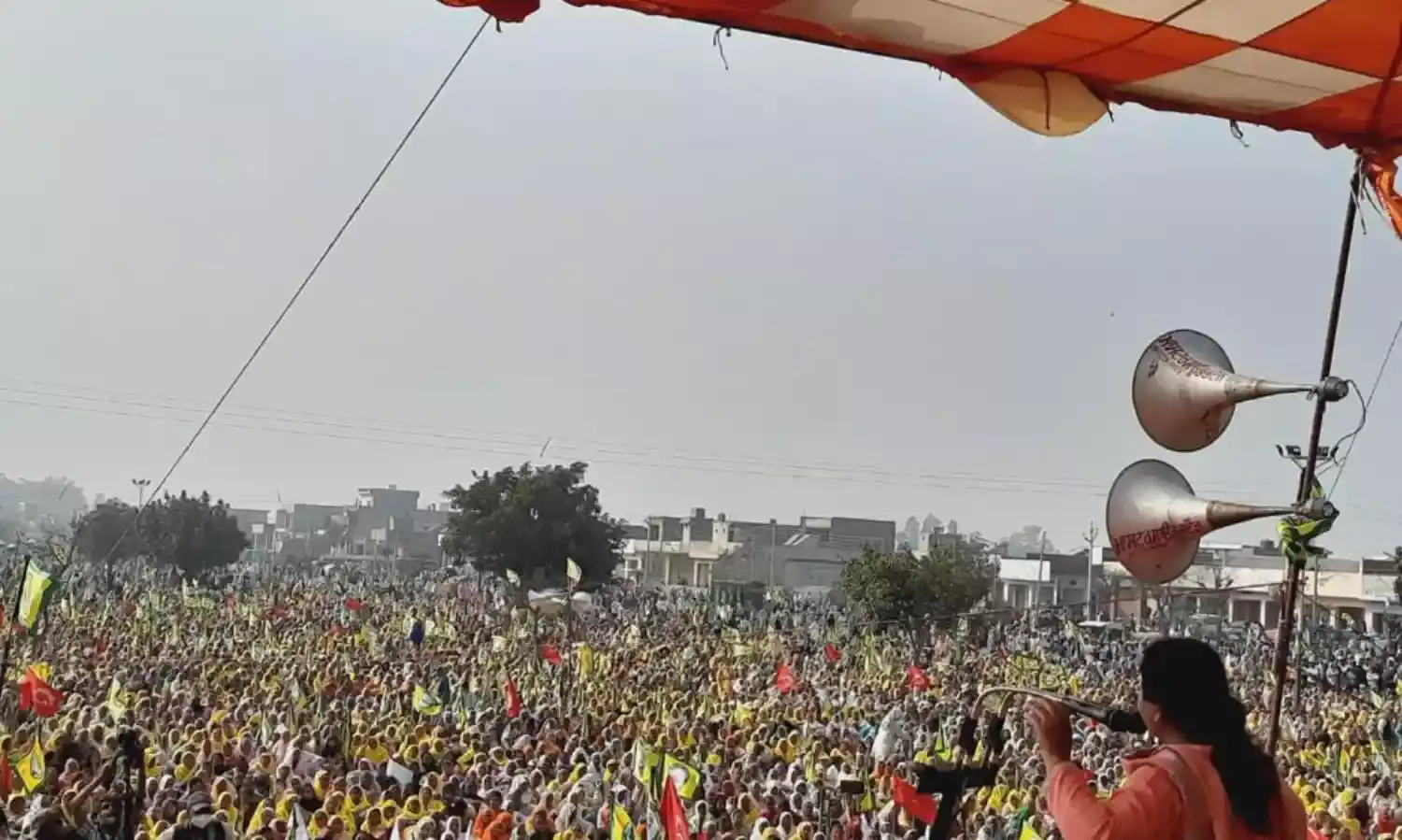Farmers Stir to Be Further Intensified in March
Samyukt Kisan Morcha to meet on Feb 28
NEW DELHI: The farmers stir is likely to be back in and around Delhi after a ‘successful’ month of chakka jams and rail roko agitations across the states. The Samyukt Kisan Morcha is expected to meet on February 28 to discuss intensifying the agitation further during March, after Parliament reconvenes from the recess on March 8.
The conglomerate of farmer organisations has been very encouraged about the response to the state level programs with the Punjab civic polls voting out the BJP and Akali Dal being seen as a “shot in the arm.” The farmers have also been trying to stop the entry of BJP legislators and leaders into their villages, with violence being reported from western Uttar Pradesh after a spat between the two sides. Speakers at the maha panchayats across Punjab, Haryana and Western UP have been urging the farmers not to allow the ruling party leaders into their areas unless they resign from the BJP, and support their demand for the repeal of the three farm laws.
Punjab Chief Minister Amarinder Singh’s suggestion that the laws be held in suspension for at least two years as against the government's 18 months offer, has not gone down well with the Morcha. Sources within said that the farmers could agree to suspension for three years, with the Lok Sabha elections then allowing the controversy to die a ‘natural death.’ This offer, the sources said, could be discussed by the morcha along with a legal framework for the Minimum Support Price that is drawing traction even in states that are not particularly responsive to the farm laws.
Singh, the sources said, while having the sympathy of the farmers in Punjab has overstretched on this. The Morcha is particularly satisfied with the response to the campaign of blocking roads and railways from states like West Bengal, Jharkhand and Karnataka and Maharashtra. At least 77 points were covered in West Bengal that is soon going to the elections, in the rail roko program ---exceeding even Punjab, the sources said. In Jharkhand the farmers came out in 56 points across the state. As the Morcha members said, “rail roko is far more difficult to organise than rasta roko, and leads usually to more arrests and punitive action but even so the spread was far beyond expectation on February 8.”
Chakka jam was also reported on February 6 from 3000 places across India, a record according to the farmers. The movement has intensified of its own volition with the leaders giving it direction by being on the move continuously. Songs, speeches, with the farmers running their own videos and Facebook Lives testifies to a continuous campaign with meetings and panchayats all across. Western UP that had voted in entirety for the BJP is now holding panchayats against the ruling establishment, although interestingly the movement has not spread to central and eastern UP with the same rapidity. Reasons vary but most farmer leaders have spoken to attribute this to entrenched feudalism and backwardness.
In Madhya Pradesh too the farmers movement has not caught on, although some signs from Gwalior and the adjoining belt in the north part of the state suggest otherwise. Farmer leaders attribute this to tribalism, and point out that while the farm laws have not evoked sufficient response here, the MSP is a common demand in most states.
A decision has been taken to further intensify the farmers movement from March 8 to March 31. The exact program will be worked out and finalised on February 8 when the SKM meets.
Cover Photograph: Mahapanchayat in Barnala, Punjab.





